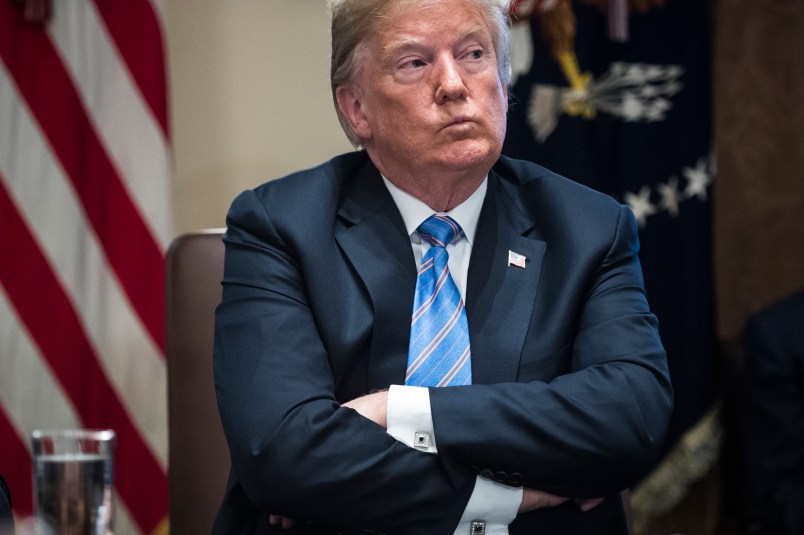As I mentioned on Tuesday, I was very skeptical that President Trump’s stunning performance at Monday’s press conference would lead to any great shift on Capitol Hill or among core Trump voters. I remain skeptical. In fact, we’ve seen evidence from the Hill tending to validate that skepticism. Some Sens and Reps are blaming Trump critics for the last four days. Many more are accepting at face value the President’s would/wouldn’t nonsense or simply saying there’s nothing they can do.
But I think there is some difference, perhaps even a watershed.
We’re not in the habit of thinking the unthinkable. The structure of the words themselves tells us that. Over the last eighteen months, most respectable opinion in the U.S. has stood aghast at President Trump’s bizarre and often inexplicable actions while yet interpreting them through series of only marginally and decreasingly plausible prisms.
One: His ego is so bound up with his presidential win that he fights any claims which suggest it may not have been a legitimate win. Okay, maybe. Two: President Trump is so set on dominance and loyalty that he may act out against those he perceives as threats, even if he hasn’t really done anything wrong. Eh, that’s a stretch. Three: Trump’s hands are clean on Russia. But he’s been knee-deep in money laundering and ties to organized crime figures for decades. His businesses can’t stand scrutiny from any serious criminal probe. True as far as it goes. Four: Maybe Trump’s just trolling us. Because everybody demands he not be friendly or accommodating to Putin, he does just that. Just to show he’s in charge. Highly dubious at this scale. Five: Maybe Trump didn’t cross any lines himself, at least not knowingly. But he can’t know others around him didn’t. I made a version of this argument myself more than a year ago. It’s just no longer plausible. Six: President Trump is simply an ideological kindred spirit. He simply supports Putinism with its mix of plutocracy and autocracy. Sure, Maybe. But again, not a sufficient explanation.
This is a lengthy list. But none of these arguments are really persuasive when you put together all the actions we’ve seen over the last eighteen months, and especially the ones of recent days. Here I think you can see a real shift. Over the last three days, I’ve seen a number of establishment figures, the people who always resist the outlandish explanations, who always stay basically conventional in their opinion and statements saying simply: Putin must have something on Trump.
Sometimes it’s specific, some kind of corrupt alliance; other times it’s amorphous, some kind of inexplicable hold Putin has over Trump by force of personality. But the kind of people who never said this kind of thing are saying it now. Somehow the President is compromised. Putin has something on him, or he has tempted his avarice with something. But there’s simply no innocent explanation for what we’re seeing.
That’s the shift. The Monday press conference made cautious, prominent people start to come to grips with the reality that Donald Trump, as crazy as it sounds and as difficult as it may be to believe, is under some kind of influence or control by a foreign adversary power, whether by fear or avarice or some other factor.
As yet, there’s little difference of behavior from elected Republicans. And I don’t expect any. What veteran foreign policy or diplomatic hands say on CNN is not the most important thing. But I think they are indicators of a change, a change of perception I expect is occurring among many who can’t yet speak.






